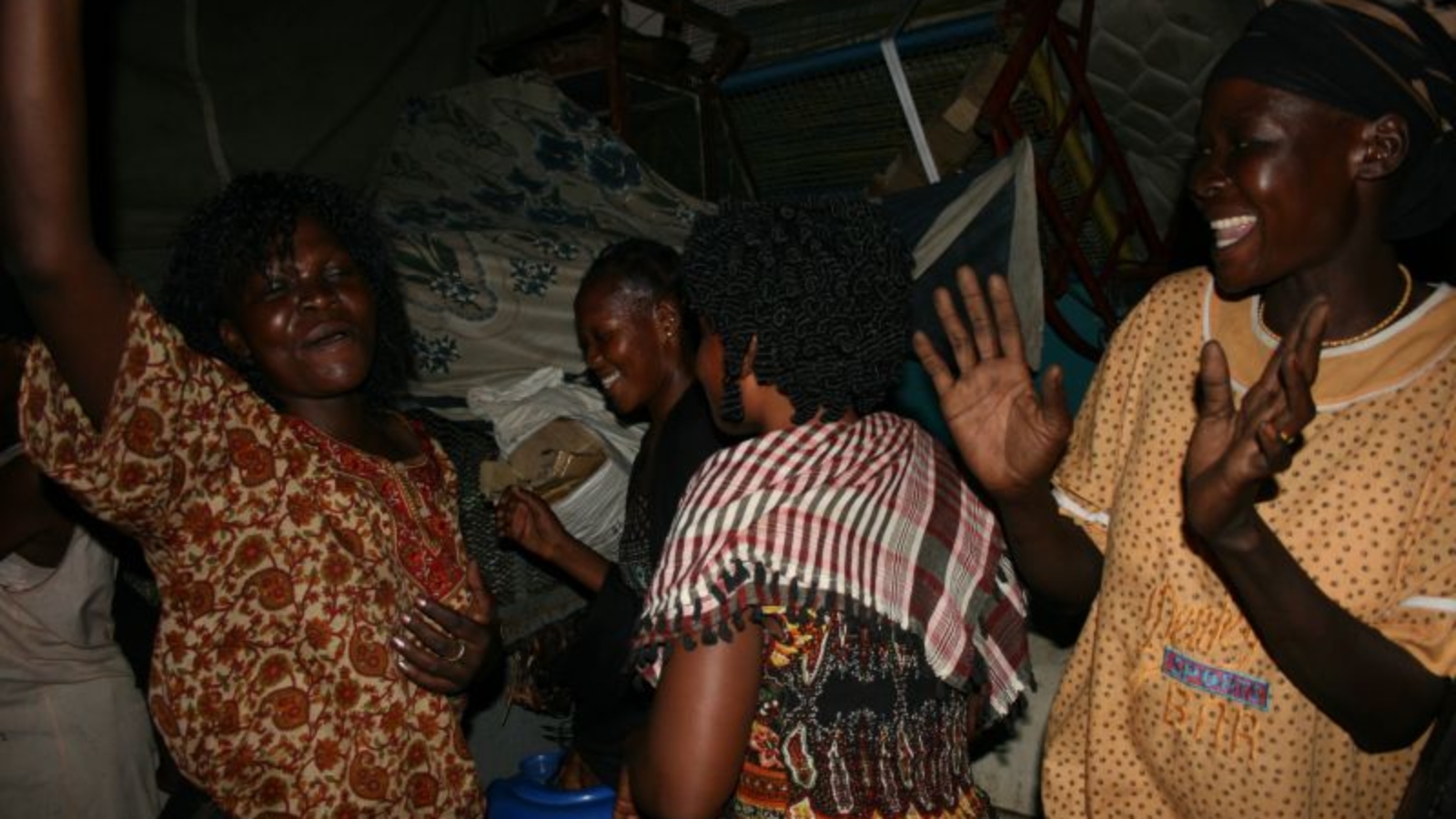The referendum on independence for Southern Sudan – a vote required by the 2005 agreement that ended Sudan's two decades of civil war – began on January 9 and ended last week. The official results won't be available for several weeks, but it is widely anticipated that they will favor independence for the south. In the meantime, the massive and rapid influx of returnees – over the last three months more than 150,000 Southern Sudanese have left their homes in the country's northern half – is creating concerns about a possible humanitarian crisis. Freelance journalist Piotr Zalewski covered the referendum from Juba, the largest city in the south, and filed this photo-essay about the returnees.
**************
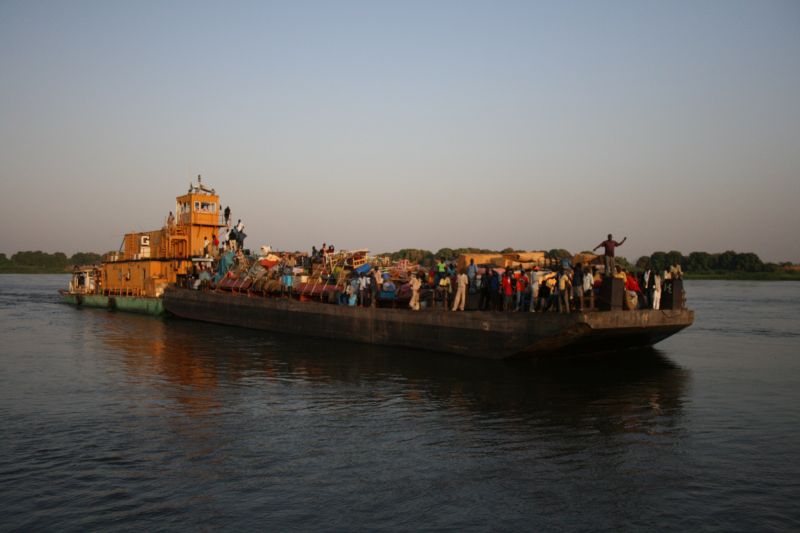
On January 8, one day before the start of the referendum on independence for South Sudan, a barge carrying southern returnees from the north closes in on the port of Juba. Juba, the south's biggest city, is expected to become the capital of the South Sudanese state The barge had set off from Khartoum 18 days earlier. During the dry season, when the waters of the Nile are shallower than usual and the river more difficult to navigate, the 1000-mile voyage can take up to three weeks.
**************
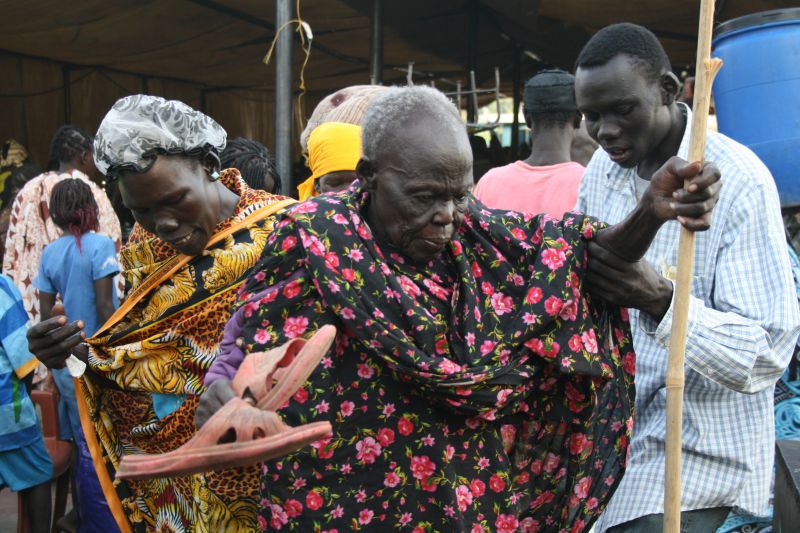
An elderly woman is helped off one of the barges. Over the past three months, more than 150,000 people have arrived from the north, according to the UN. By the time the south formally declares independence in July, their number may reach half a million. (About one million southerners live in the north. Most of them fled the south during the civil war in the 1980s and 90s and settled in shantytowns around Khartoum.)
**************
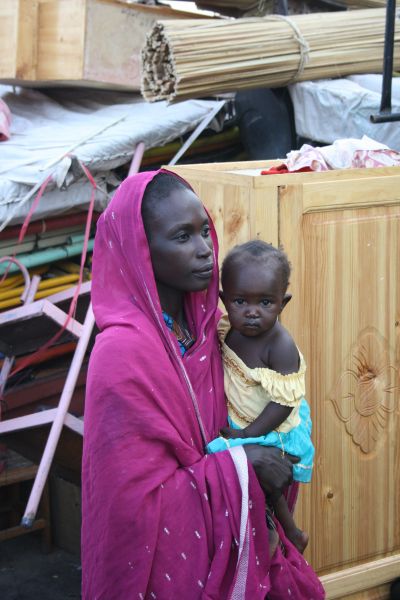
A woman, carrying her child, awaits as cargo is offloaded from her barge. After repeated threats by the government of Omar al-Bashir that Southern Sudanese would lose the right to citizenship if their region votes to secede, many southerners no longer see a future for themselves in the Arab-dominated north. Many have also returned to the south out a sense of national pride. "We want to take our land back," said Cipiriano Wani, one of whose (two) wives and eight of whose (fifteen) children have just arrived from the north. "Our land is here."
**************
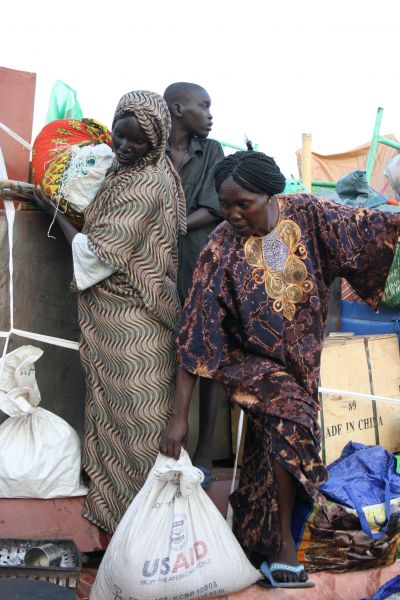
Most of the returnees appear to have left nothing behind, bringing along all manner of household supplies, furniture and farm animals.
**************
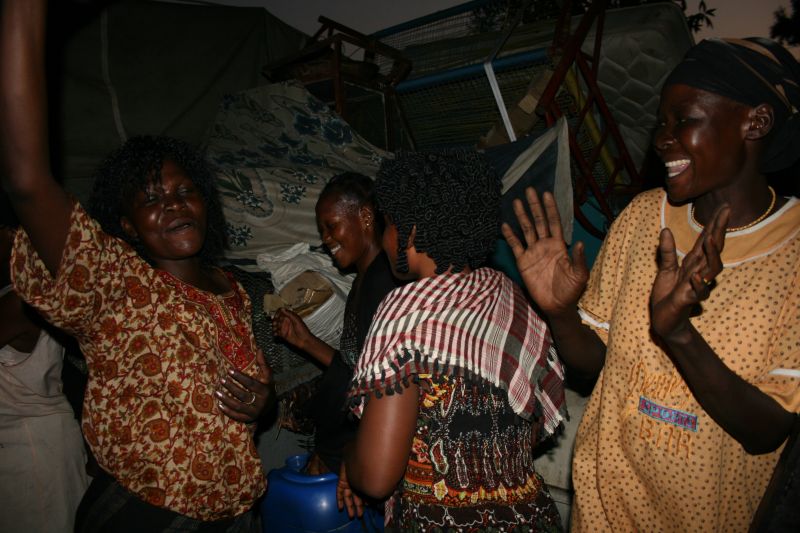
Aboard another barge that reaches Juba the same evening, women celebrate their arrival in the south by banging on pots, singing and dancing.
**************
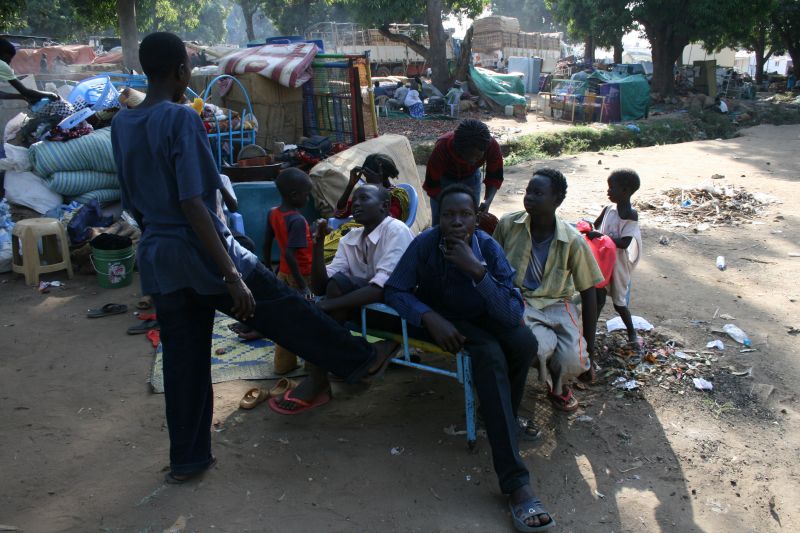
Those among the returnees who have no relatives in Juba may have to wait days or weeks before continuing their journey. At this makeshift camp, several hundred returnees have been waiting a week for government trucks to ferry them onwards to their final destinations.
**************
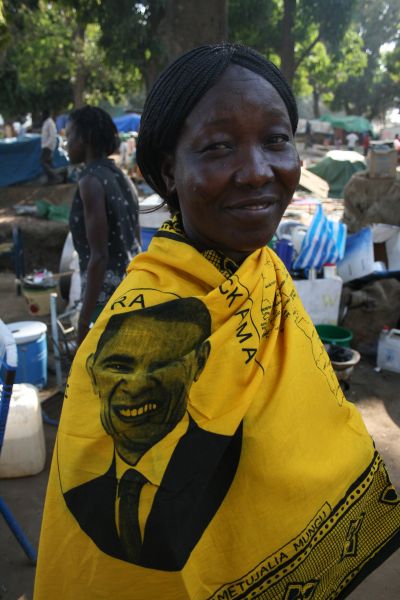
"Tell Mr. Obama to bring us some money so that I can buy a house here," said this woman, who has just returned from Khartoum to settle in Juba. The government of the autonomous south, even with the considerable aid of NGOs and international agencies, is struggling to cope with the massive influx of returnees. "Conditions are deteriorating and needs are growing every day as more Sudanese returnees arrive in towns and villages already stretched to capacity," the International Rescue Committee warned in a statement. "We are seeing an existing humanitarian emergency grow rapidly worse."
Piotr Zalewski is an editor at European Stability Initiative and a correspondent for Polityka, Poland’s best-selling news magazine. His article about Turkey's foreign policy, "A Self-Appointed Superpower," appeared in the Winter 2010-2011 issue of World Policy Journal.
